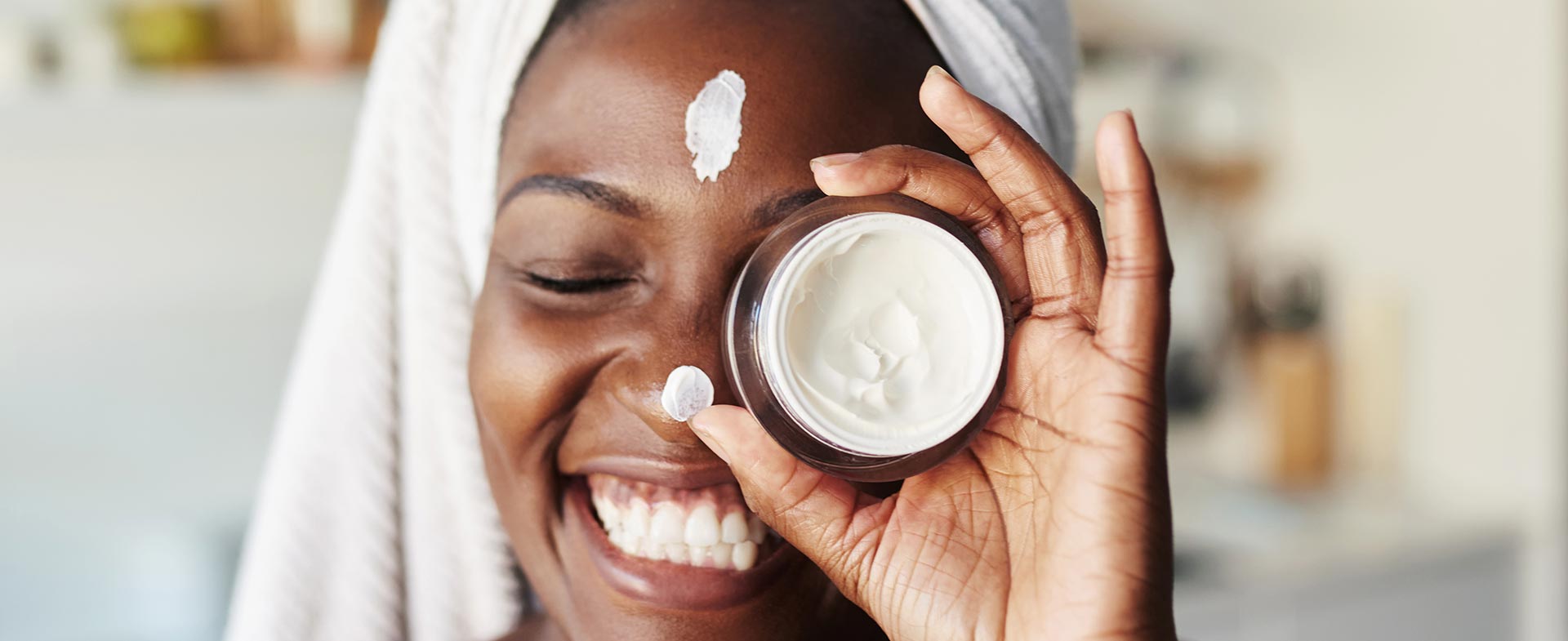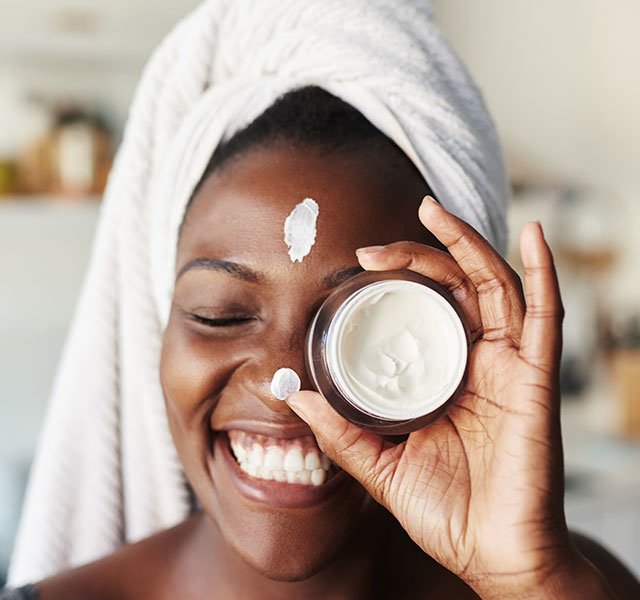Aging skin is an inevitable part of growing older. The good news: There are a number of things you can do to slow down the process, or at least minimize the appearance of fine lines, wrinkles and pores.
"We use the term ‘cosmeceuticals’ to describe ingredients in skin care products that have pharmacologic effects, but these are not regulated by the Food and Drug Administration," says Anna Axelson, M.D., a dermatologist at Henry Ford Health. Unfortunately, with thousands of products lining drugstore shelves — all promising to make you look decades younger than your age — deciding which to choose can be a challenge.
Key Anti-Aging Ingredients
If you want to achieve more youthful-looking skin (and who doesn't?), there are countless cosmeceuticals that claim to help. The challenge is being able to differentiate which products deliver the anti-aging effects they promise — and to be patient.
"Over-the-counter products can help improve the appearance of fine lines, wrinkles, and dark spots, but you need to have realistic expectations," Dr. Axelson says. "It may take 3 to 6 months before you begin to notice the improvements."
A few key ingredients to look for on product labels:
- Vitamin C: Vitamin C is a powerful antioxidant that helps repair DNA damage, which can help minimize the intensity of age spots. While some skin care ingredients contain oversized molecules that are too large to penetrate skin cells, vitamin C molecules are micro-sized, so they can travel into cells and produce a measurable effect.
- Vitamin A: You've probably already heard that vitamin A derivatives, including tretinoin (also known as Retin-A or Renova) and retinol and can help reduce the appearance of fine lines, wrinkles, pores and sunspots. In fact, vitamin A derivatives regulate cell turnover, reduce brown spots from the surface of the skin and stimulate collagen production. "One of the side effects of these vitamin A derivatives is dryness, so you want to make sure you have a moisturizer on board as well," Dr. Axelson says.
- Gentle acids: Alpha, beta, hydroxy, salicylic and glycolic acids act as natural exfoliators to brighten dull skin. They also help minimize the appearance of fine lines and large pores. "Pores are your body's natural cleansing system, so you can't remove them entirely," Dr. Axelson says. "But hydroxy acids help remove dirt and oil from the pores to make them less noticeable."
- Ceramides: Ceramides are lipids, or fats, that help your skin retain moisture. A bonus: They act as a powerful barrier to environmental damage. Ceramides seal in moisture and repair cracks, which can minimize the appearance of fine lines and improve skin tone and suppleness.
- Hyaluronic acid: Hyaluronic acid occurs naturally in the body. As a humectant, it draws in moisture and binds to water, which plumps and hydrates the skin. The effects help reduce the appearance of fine lines and wrinkles. Plus, the gel-like substance makes skin smoother and softer to the touch.
Botanical ingredients can be hit or miss, according to Dr. Axelson. "Even though botanicals are natural, the botanicals themselves or preservatives they contain may irritate the skin or trigger an allergic reaction."
Ingredients that may be helpful for anti-aging include green tea, oat and feverfew. All three contain antioxidant and anti-inflammatory properties, which help reduce redness and irritation and may help skin cells repair themselves.
Developing An Anti-Aging Skin Care Regimen
Over-the-counter skin care products can help rejuvenate the skin and create a more youthful appearance. In addition to wearing sunscreen daily, adopting a simple skin care regimen can help protect your skin against the effects of aging.
A good skin care routine doesn't have to be expensive or complicated. In fact, there are only three essential steps:
- Cleanse: Use a gentle cleanser (not something harsh or exfoliating) both morning and night. Want to exfoliate? Stick to once or twice a week to avoid creating tears in the skin.
- Moisturize: Many ingredients that help reduce the signs of aging also dry out the skin, so it's important to moisturize regularly. Products that contain ceramides and gentle acids may add extra softness.
- Protect: Wear a broad-spectrum, ultraviolet A (UVA) and ultraviolet B (UVB) sunscreen sporting a sun protective factor (SPF) of at least 30.
If you have specific skin care concerns, such as fine lines, wrinkles, brown spots and other signs of aging, you may want to add an over-the-counter or prescription vitamin A cream to your repertoire.
"Most important, if you notice any changes in your skin, or if you have a lesion that is bleeding, scaly, or that is changing in size or color, reach out to your primary care provider or dermatologist," Dr. Axelson says.
To find a doctor or dermatologist at Henry Ford, visit henryford.com or call 1-800-HENRYFORD (436-7936).
Dr. Anna Axelson is a board-certified dermatologist who sees patients at Henry Ford Medical Centers in Detroit and Grosse Pointe Farms.



